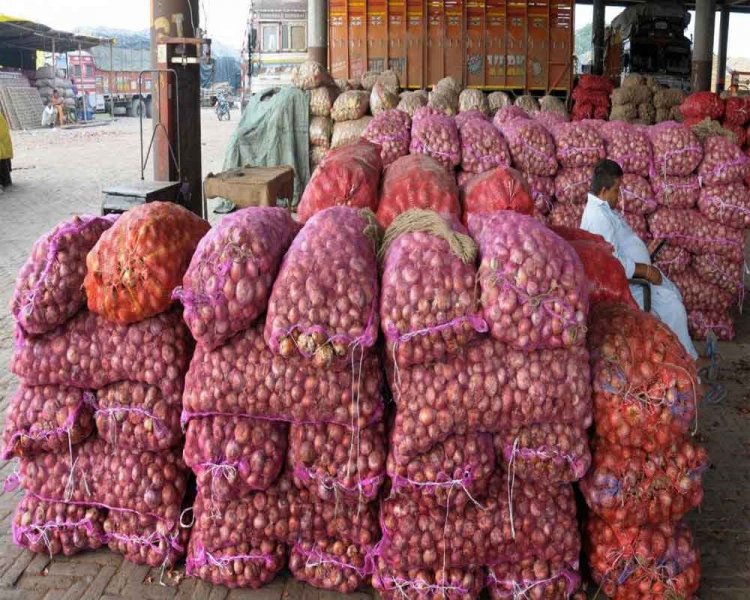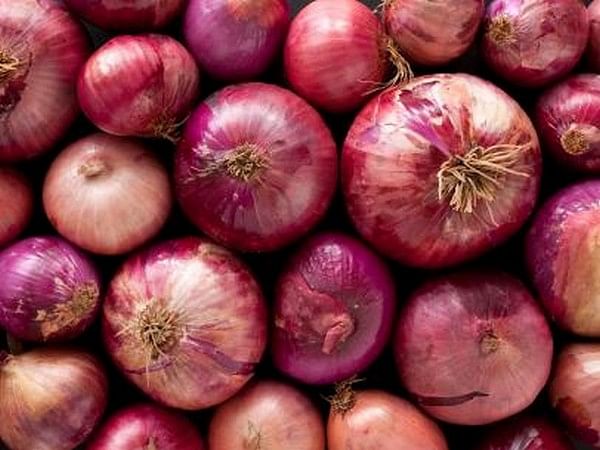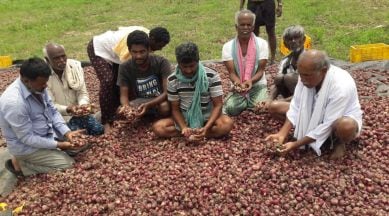The Indian government has made a significant decision regarding the export of onions to manage prices and ensure domestic supply. The government had earlier imposed a 40 percent export duty on onions until December 31, 2023. However, there’s a notable exception to this rule, as ‘Bangalore Rose Onion,’ a unique variety grown in Karnataka, has been exempted from this export duty. This exemption comes with a condition, requiring exporters to obtain certification from the Horticulture Commissioner of Karnataka.

Source: Rural Voice
The official notification from the Ministry of Finance stated that goods intended for export would be allowed without the 40 percent export duty, but there’s a crucial requirement. Exporters must provide a certificate issued by the Horticulture Commissioner of the Government of Karnataka. This certificate will certify the specific item and quantity of Bangalore Rose Onion intended for export. The announcement came into immediate effect, making it pertinent for onion exporters to adhere to the new regulation. Bangalore Rose Onion is a unique variety cultivated in and around Bengaluru, Karnataka, and gained Geographical Indication status in 2015.

Source: ThePrint
The decision to impose a 40 percent export duty on onions was introduced in August as part of the government’s strategy to control rising prices and ensure an adequate supply of onions within the country. In the same month, the central government initiated the release of onions from its buffer stock. The government’s buffer stock is a strategic reserve of onions maintained to address unexpected circumstances and stabilize prices, particularly during periods of low supply. In the 2023-24 season, the government aimed to maintain a buffer stock of 3 lakh tonnes, an increase from the 2.51 lakh tonnes held in the previous year.

Source: The Indian Express
The significance of the buffer stock lies in its ability to meet the demand for onions during lean supply seasons. Rabi onion, harvested from April to June, constitutes approximately 65 percent of India’s total onion production. These onions play a crucial role in fulfilling consumer demand until the Kharif crop, harvested between October and November, becomes available. By maintaining a substantial buffer stock, the government ensures a stable supply of onions throughout the year, reducing the impact of price fluctuations.













































































